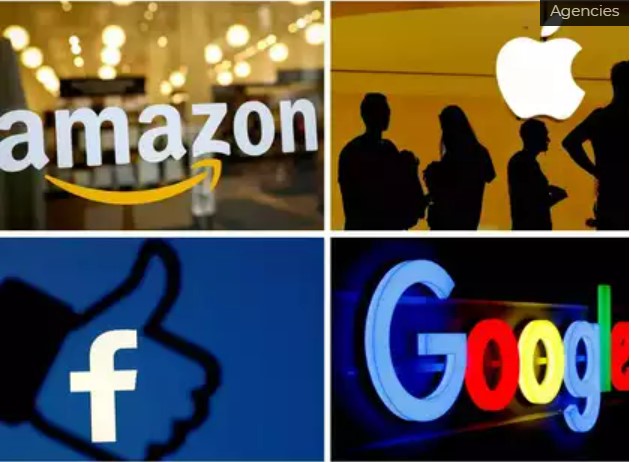However, in a June 2019 analysis, Ryan Bourne of the Cato Institute says history shows that supposed monopolies are temporary, and old giants are constantly ousted by new ones. The Great Atlantic and Pacific Tea Company (A&P), the US retailing giant of the 1920s-30s, was prosecuted for monopolistic practices, but was downed by new technology and market forces that led it to bankruptcy in 2010.
Leftists have long denounced neoliberalism – whatever that may mean – for creating winner-take-all giant corporations that are virtual monopolies, piling up enormous profits and becoming too powerful for social good. Demands have risen, not just from the Left but also the likes of Financial Times, for breaking up the FAANG – Facebook, Apple, Amazon, Netflix, Google – giants.
However, in a June 2019 analysis, Ryan Bourne of the Cato Institute says history shows that supposed monopolies are temporary, and old giants are constantly ousted by new ones. The Great Atlantic and Pacific Tea Company (A&P), the US retailing giant of the 1920s-30s, was prosecuted for monopolistic practices, but was downed by new technology and market forces that led it to bankruptcy in 2010. Myspace was the original social media giant whose dominance seemed above challenge. Yet, Facebook soon ousted it.
Never Mind YOLOpolies
Nokia was world champion in mobile phones in 2007. But then a computer company called Apple converted Nokia into an also-ran. Kodak dominated cameras for almost a century but was busted by new technology. iTunes, once a music monopolist, was flattened by Spotify and Pandora. New innovators kept killing ostensibly unchallengeable monopolists.
Current events have proved Bourne right and the critics wrong. FAANG and other giants face crashing profits and share prices. Don’t attribute this to Covid and the Ukraine war. Share prices and profits fell initially with Covid, but soared soon after. Ukraine brought a similar cycle. FAANG outpaced other corporates in the bounce-back.
But no more. Today’s deep crash marks the end of an era when loose monetary policy and near-zero interest rates spurred crazy market valuations, not just for tech giants but across the board, even for startups that had never made a profit. With the return of normal interest rates, those crazy valuations have ended. Today, we know the skyrocketing of FAANG prices – and immense wealth that was created – was a chimera driven by loose money, not a structural monopoly.
The share price of Facebook, now renamed Meta, has fallen from almost $400 a year ago to $93 today. In the last quarter, its profit halved, and revenue fell 4%. After years of spectacular growth, it faces stagnation. Far from clinging to a social media monopoly, Facebook seeks a new future in the metaverse. Which is why it has changed its name to Meta. But it suffered a whopping loss of $3.7 billion on its Meta unit in the last quarter. TikTok has eaten Instagram for breakfast and YouTube for lunch.
Amazon’s share price has almost halved from $186 a year ago to $102. Once feared as a brick-and-mortar monopolist, Amazon shifted to ecommerce where it faced rivals galore (Walmart, Alibaba). Far from acting like a monopolist, Amazon diversified into cloud services, which now provide most of its profits, entertainment (Amazon Prime Video), and is contemplating health services and self-driving cars.
Apple has been the best-performing tech titan. But it, too, is under pressure. Net profit in the latest quarter rose only 1%. Recession means revenues will fall in coming months. Apple faces competition aplenty from other cellphone and computer producers. It is famous for constant innovation, not monopoly. Its share price is down from $180 at the start of the year to $150.
Netflix’s share price has more than halved from $690 a year ago to $291, a partial recovery from a low of $167. The company profited immensely from Covid, which forced people to sit at home. But rivals are now cascading into streaming video – Disney+, Amazon Prime Video, Hulu, YouTube Premium, Apple TV+ and others. Netflix is no monopolist. Measured by free cash flow, Netflix does not even make a surplus: it burns more cash than it earns.
Face(book)palm Moment
Google’s share price is down from $150 in mid-summer to $94 despite a buyback of shares. EU regulators have fined it $9.3 billion for anti-competitive policies, and similar investigations are likely in the US. But market forces have deflated it far more than regulators. Its search engine faces competition from Bing and Alexa. In non-monopolistic fashion, Google has diversified from its search engine to cloud services, self-driving cars, smart home appliances and life sciences.
You might think that Twitter is a sort of monopoly. But it has lost money for eight successive years. After buying Twitter, Elon Musk is sacking staff mercilessly to survive.
Joseph Schumpeter showed that capitalism works because new innovators constantly oust existing leaders, and, in turn, are ousted by newer innovators. Patents provide temporary monopolies and super-profits. But these are temporary, so constant innovation is necessary for survival. Of the benefits of innovation, recent studies suggest only 2% go to innovators and 98% to consumers. Whatever the gains of Mark Zuckerberg or Jeff Bezos, society gains much more.
Corporates can be very crooked. Many attempt anti-competitive tricks, which regulators must scotch. But breaking them up is rarely required. IBM’s supposed computer monopoly disappeared even while it was being prosecuted. The market will usually do the job.
The good news: liberalism has promoted innovation and fantastic consumer gains without creating monopolies. No matter how large and monopolistic the profits of innovators may seem, they are temporary. Stratospheric share prices and wealth represent loose monetary policy, not monopoly. The world is a sunnier, saner place than critics believe.
This article was originally published by The Economic Times on Nov 01,2022


